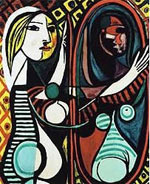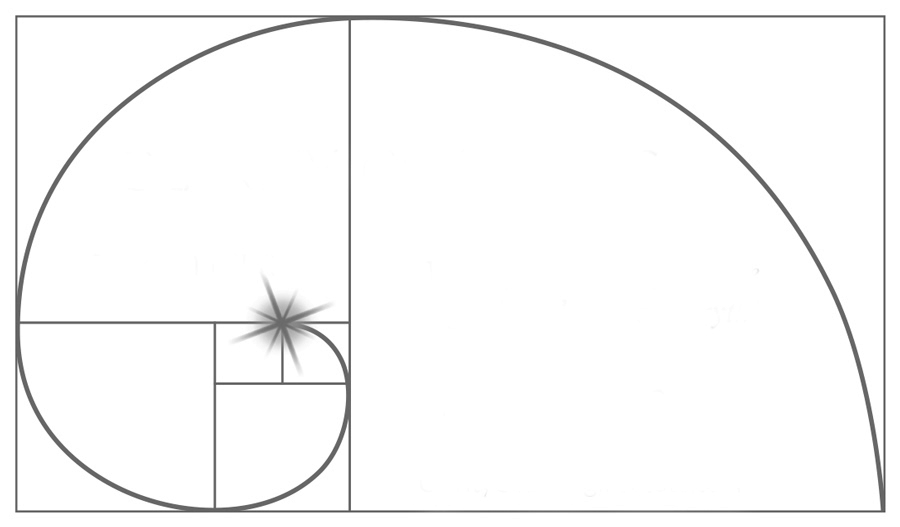Unveiling My Vanity:
Beauty and the Eye of the Beholder
By Kathryn Dixon
 Mirror, mirror on the wall, who’s the fairest of them all? So many of us find ourselves unwittingly in perpetual search for how we can look better: sharper, sexier, trimmer, stronger, more voluptuous, younger, older, prettier, and more fashionable.
Mirror, mirror on the wall, who’s the fairest of them all? So many of us find ourselves unwittingly in perpetual search for how we can look better: sharper, sexier, trimmer, stronger, more voluptuous, younger, older, prettier, and more fashionable.
This fervor for possessing the attractive extends beyond the boundaries of our own physiologies. I knew I was in trouble a few weeks ago when during a car hunting expedition, a friend asked what I really wanted. Instead of environmentally friendly or safe, the first words out of my mouth were, “Oh, I want something cute and sexy!”
Now, wanting a cute and sexy car is not explicitly one of the seven deadly sins, but I can tell you from experience that an unchecked desire for a cute and sexy anything can lead us down a prickly path. It can appear as a life lived as an approval-seeking missile that never hits the mark — perhaps because the only approval that will ever satisfy us is our own?
We’re going to investigate a typical belief people share, using four simple questions originally put to us by teacher Byron Katie. (Find more information about the process at www.thework.com.)
We begin with the underlying belief provoking any stressful experience. For instance:
It’s important that others see me as physically beautiful.
Question 1: Can I really know that it’s true?
Well, yes. Being attractive brings the good things in life — attention, better jobs, more money and more opportunities. Everyone knows that.
Question 2: How do I react when I hold this belief?
I indulge in an obsession about the size, shape, age and condition of my body. And I notice that the obsession is fueled by a certainty that I can’t possibly be good enough just as I am.
At the other end of the spectrum, I hold a contentious pride about my best features. I’ve got a great smile, sparkling, bright eyes and an ample bosom. One would think this pride might feel good, but actually, it feels arrogant and fragile rather than good.
Meanwhile, I judge men as wrong for having the superficial criteria of physical appearance as the primary determinant for their attraction to women. Never mind that I share the same proclivities.
I treat those who appear less blessed than I as unfortunates who deserve my understanding and mercy, but I don’t quite know what to do with the nasty taste of condescension left in my mouth. I call my demeanor compassion, but somehow I can’t really feel my heart in it, so what is it really? When faced with unattractiveness that seems too painful to endure, I go blank, dismissing it completely, averting my gaze and pretending I just didn’t see.
I have an interesting perspective in this regard; my daughter Jessica was born with what doctors call Down Syndrome. I call it “Teacher from Jupiter.” Many times in public we’ve been on the receiving end of the averted gaze. I get to see myself coming and going, and it hurts in both directions.
Question 3: Can I see a reason to drop this belief?
Yes, I do see numerous reasons to drop the belief that I want others to see me as beautiful. And I’m too afraid of disapproval from you and even myself to let it go at the moment. I can, however, admit that I can’t see any reason to keep this belief that doesn’t hurt or cause anxiety.
Question 4: Who would I be without this belief?
If I didn’t want others to see me as beautiful, I would relax. Ahhh, that feels better already. I would breathe deeper and be more present. I wouldn’t spend my life calculating and manipulating perceptions of myself or you. I would have more time to notice and appreciate the beauty of others instead of living in the relentless seeking of recognition for my own.
I might just consider my beauty to be a given. I’d appreciate myself exactly as I am in this moment, without wishing anything were different in any way-inside or out. I might even feel an inner peace. Without this belief taking up space in my head, I’d also be less fearful and judgmental of others who don’t fit the mold for societal beauty. I could look them right in the eye and see them and myself for the first time.
Finally, without the belief that I want others to see me as physically beautiful, I’d be more open to the beauty deeper than appearances, the essential inner beauty, a spiritual beauty that might actually be the light behind all beauty in this world.
The grand finale of The Work is what Katie calls the “turn-around.” We take the original belief and recreate it in various ways by stating its opposite, changing subject and object, and making it completely focused on ourselves instead of someone else. The result is often truer than the original offending belief. (Tempting as it may be, do not jump to the turn-around without first availing yourself of the expanded horizons garnered by first answering the four questions.)
It’s not important that others see me as physically beautiful.
Surprisingly, that might be true! It’s not my business how others interpret my appearance. The search for the contrary is exhausting and, in the end, relatively fruitless. I don’t want to expend energy in that regard any more; I have more exciting and fulfilling ways to spend my life.
It’s important that I see others as physically beautiful.
Yes, that’s truer than the original statement for sure. I want to be able to see the beauty in everyone, far more than I want the world to see my beauty.
A final turn-around might be:
It’s important that I see myself as physically beautiful.
I can find that! To appreciate my self is love. It’s simple, it’s clean, and it feels good and true. Katie calls it “loving what is.” Without comparing myself to others, I am perfectly beautiful each and every moment. And this awareness opens the door to a spiritual beauty that feels like peace. Something I’ve never found at a spa, gym or make-up counter. And it doesn’t cost a dime.
Copyright © 2006 New Moon Press. Catalyst Magazine

Recent Comments